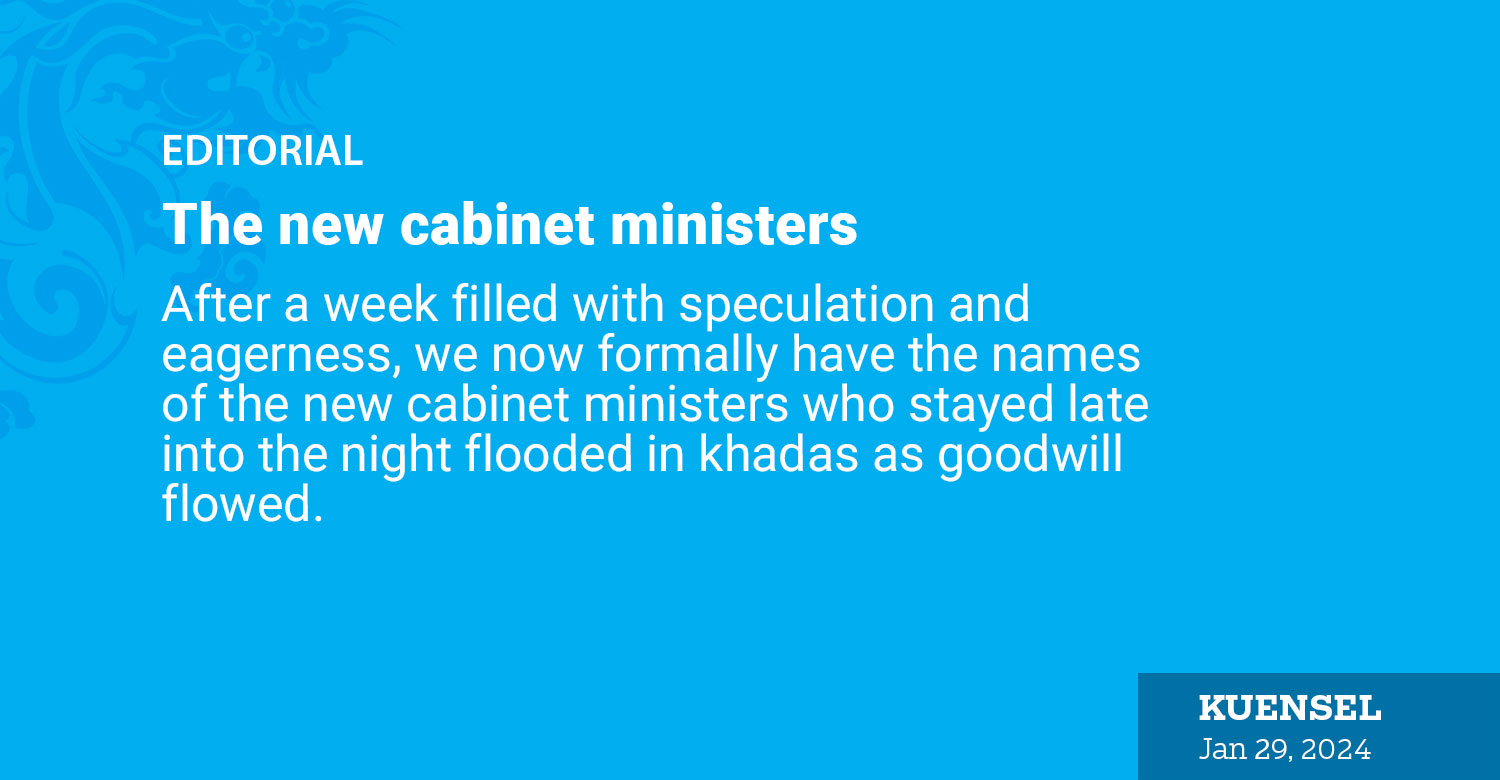After a week filled with speculation and eagerness, we now formally have the names of the new cabinet ministers who stayed late into the night flooded in khadas as goodwill flowed.
The People’s Democratic Party’s cabinet is a mix of seasoned politicians who have served as ministers in the past and young professionals, some of whom surprised many including party members, supporters, and in some cases, members themselves. A good team, says many, as the list circulated and the new ministers appeared after receiving the Daken from His Majesty The King.
One of the excitements after the general round of the elections is who will be given the ministerial portfolio. And after four elections, many are convinced and even name possible ministerial candidates. This is because one of the main criteria, many believe, is regional and gender inclusivity.
The Minister for Education and Skills Development, Lyonpo Dimple Thapa, as the lone female elected was everyone’s expectation. However, Lyonpo Dimple Thapa was not given the portfolio because she was the only woman. Former colleagues know her as a professional, proactive and a capable officer who can impose decisions when serving in the government.
Her colleague, the Minister of Agriculture and Livestock, Lyonpo Younten Phuntsho, with more than a decade of experience in forestry, conservation and environment management, many say would be an automatic pick even if he was not the lone member of parliament elected from eastern Bhutan. A noticeable change in the Cabinet is that we have, for the first time, a foreign minister from southern Bhutan. Lyonpo DN Dhungyel, serving his second term as an elected minister, is heading the Ministry of Foreign Affairs and External Trade.
The PDP’s new team, if any symbolic, represents its past as one of the oldest political parties and the way forward with some surprises in the team. The young professionals saddled with the responsibility of leadership, meanwhile, are seen as a process of change and a sign of encouragement that the old order changeth yielding place to the new. The talks doing the round, even as well-wishers waited with khadas in their hand, was that the biggest change democracy brought about was recognising chodrup (capabilities), a significant departure from the past.
The party has reposed its trust in the new team of ministers for a “Better Drukyul”. What they need is the support of the institutions; the bureaucrats, civil society, business sector, media and the opposition party, as the work begins now to translate the pledges, the vision and the energy into responsibilities and policies.
The new government and its cabinet ministers are better positioned to make changes and they know it well. We have the 13th Plan coming up with a lot of expectations and the government is elected on the slogan of making Bhutan better. As many ask how and what the government would do, the expectation is that PDP, under the leadership of Prime Minister Tshering Tobgay will deliver. It is his last term as the Prime Minister and we see the energy and the urgency in him to deliver and leave a legacy as Bhutan’s first two-time elected prime minister.


